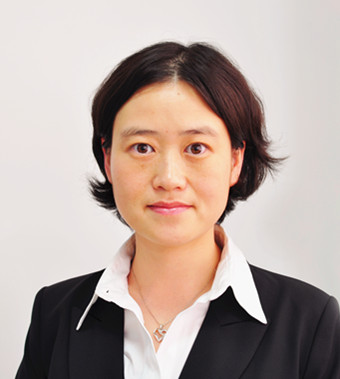University of Michigan- Shanghai Jiao Tong University Joint Institute (UM-SJTU JI) Assistant Professor Yong Long’s joint proposal with UM Professor Jeffrey A. Fessler titled “Ultra-Low Dose CT Image Reconstruction Based on Big Data Priors” has won a two-year funding by the 2015 UM-SJTU Collaborative Research Grant in the fields of nanotechnology and data science.
The U.S. Preventive Services Task Force (USPSTF) recommends annual screening for lung cancer with LDCT (low dose CT) in high risk adults. If the dose can be reduced to an ultra-low level but still provide superior image quality, ULDCT (Ultra-low dose CT) screening could be prescribed widely for detection and treatment of early-stage lung cancer and reducing lung cancer-related deaths. ULDCT screening for lung cancer is highly needed in China where lung cancer is the most common cancer and the leading cause of cancer-related death.
CT image reconstruction method improvement that realistically and significantly reduces patient radiation exposure while maintaining high image quality is an important area of research to achieve low dose CT imaging and is highly encouraged by national agencies, such as NIH. Model-based image reconstruction (MBIR) methods improve the ability to produce high-quality and accurate images, while greatly reducing patient exposure to potentially harmful leve1 of radiation. Better prior information based on image corpus statistics is required to help solve the challenging problem of reconstructing high quality images from ULDCT data. MBIR with better prior information is the most promising reconstruction method for achieving high quality ULDCT imaging.
Professor Yong Long’s project aims to incorporate prior knowledge extracted from big data collections of clinical CT images into the regularization design of the MBIR methods for X-ray CT. The proposed improved MBIR methods are expected to provide high image quality while further reducing the X-ray radiation dose to an ultra-low level.
Since 2009, UM and SJTU have collaborated in funding researches in the fields in energy and biomedicine. Successful faculty collaborations were formed and led to new joint research programs. During the last Symposium, nanotechnology and data science were identified as topics of common interest to faculty of both universities and thereby were pursued in the 2015 round of funding.

Dr. Long received her Ph.D. degree in electrical engineering: systems from the University of Michigan (UM) in 2011. She was a postdoctoral research fellow in the Department of Electrical Engineering and Computer Science (EECS) at UM from 2011-2012. Prior to joining JI as an assistant professor in 2014, she was a research scientist in the X-Ray Computed Tomography (CT) Systems and Applications Laboratory at General Electric (GE) Global Research Center in Niskayuna, NY. She received the Fourth Chinese National Prize for New Advances in CT and 3D imaging in 2010 and the Best Poster Award at the tenth International Meeting on Fully Three-Dimensional Image Reconstruction in Radiology and Nuclear Medicine in 2009. She received Shanghai Pujiang Scholar award in 2015. Dr. Long serves as a referee for seven journals, including IEEE Transactions on Medical Imaging (TMI), IEEE Transactions on Image Processing (TIP).





